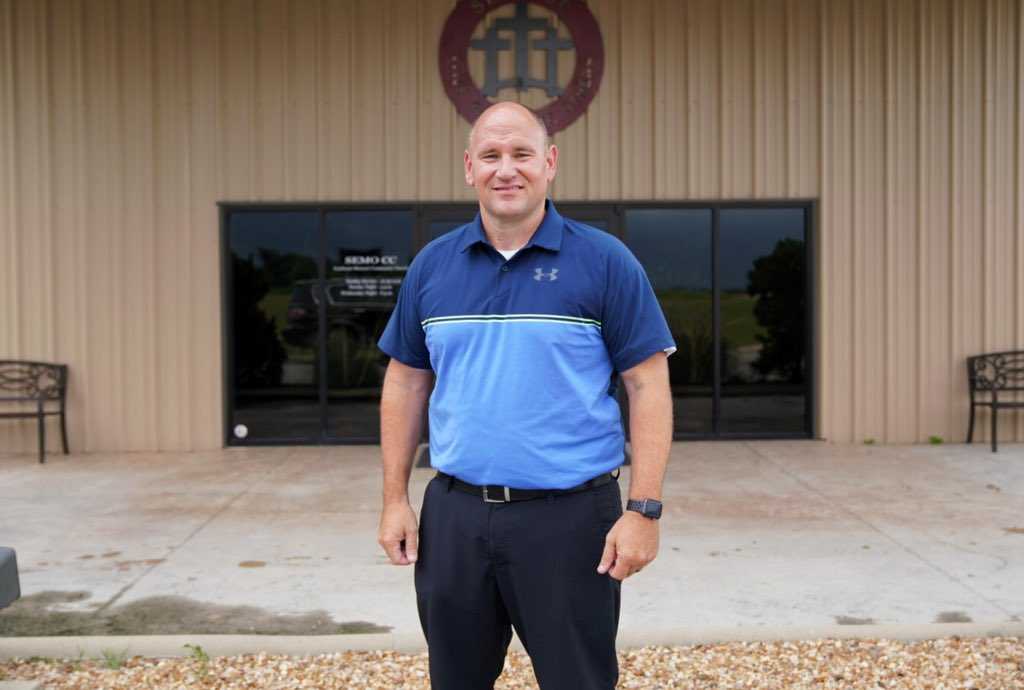Mark Pickard is a teacher and a preacher in the small town of Malden, Missouri, where he knows just about every kid by name.
Sen. Josh Hawley (R-Mo.) highlighted Pickard’s story on his Twitter account Thursday, praising the small-town pastor for his commitment to the community and for truly loving his neighbors, like Scripture commands believers to do.
Pickard is a bi-vocational pastor, which means he doesn’t receive compensation for his work at Southeast Missouri Community Church, instead supplying for his own financial needs by working as a middle school teacher in the Malden R-I school district. His wife, Hope, is a kindergarten teacher.
While his schedule does often leave him stretched thin, Pickard’s bi-vocational ministry affords him the opportunity to get to know the people in his community outside the traditional church context.
In addition to seeing them as church members, Pickard also knows the kids in his community as students and athletes.
“[My wife] has them in kindergarten and then I have them again in junior high,” Pickard told Faithwire over the phone Thursday. “You form relationships with these kids and we can see the love of Christ in the community.”
For those who grew up in Christian culture, it’s easy to slide into thinking its the responsibility of unbelievers to find their way to us, to meet us where we’re comfortable.
That, though, is not at all what Scripture tells us. When Jesus ascended into heaven, he told his followers: “You will receive power when the Holy Spirit comes upon you. And you will be my witnesses, telling people about me everywhere — in Jerusalem, throughout Judea, in Samaria, and to the ends of the earth.”
Jesus, in that moment, essentially gave believers a blueprint for Gospel multiplication: start in a place that’s comfortable, in your hometown — like Jerusalem. Then stretch further and further out, taking the Gospel to those who need to hear it, rather than waiting for them to possibly wander in your direction.
“I’m not a church kid,” Pickard explained. “I didn’t grow up in church, I don’t think the way church members think because I didn’t come to Christ, really, until I was in my 20s.”
Being in bi-vocational ministry has been extremely difficult, the pastor continued, but it has also “opened the doors in so many different ways that I could not have if I was full-time at the church.”
“It would be nice to be able to sit and do Bible study and sermon preparation,” Pickard added. “But I actually get to give these kids fist bumps in the hallways.”
Pickard’s job as a teacher also gives him moments to minister to his students in practical ways. Last year, for example, one of his students tragically died.
While he doesn’t preach publicly about Jesus in the classroom, since he works for a public school, his students are free to come to him at any time to talk about faith, their struggles, and their fears.
“We had a boy who died here last year, and the school called me to come in and do counseling,” Pickard recalled. “Even though I’m a teacher, I’m a pastor, and pastor’s are allowed to counsel kids who want it at that time, so I was able to get a substitute and counsel kids in the school district.”
“If I wouldn’t have been a pastor [and] teacher,” he continued, “then they probably wouldn’t have called on me. But they know they can trust me and the kids trust me, so the kids will come talk to me.”
The primary lesson bi-vocational ministry has taught Pickard and his wife about their small town is that so many kids — regardless of where they are in life — “don’t have hope” because their options are limited: many of them don’t have cars or even access to a computer and the closest college is 30 miles away.
“They need hope, and we know hope starts with Jesus Christ — a relationship with him,” he said. And for many of the kids in Malden, Pickard is the only glimmer of hope they see.
“I’m glad to speak up for the Lord,” he added



